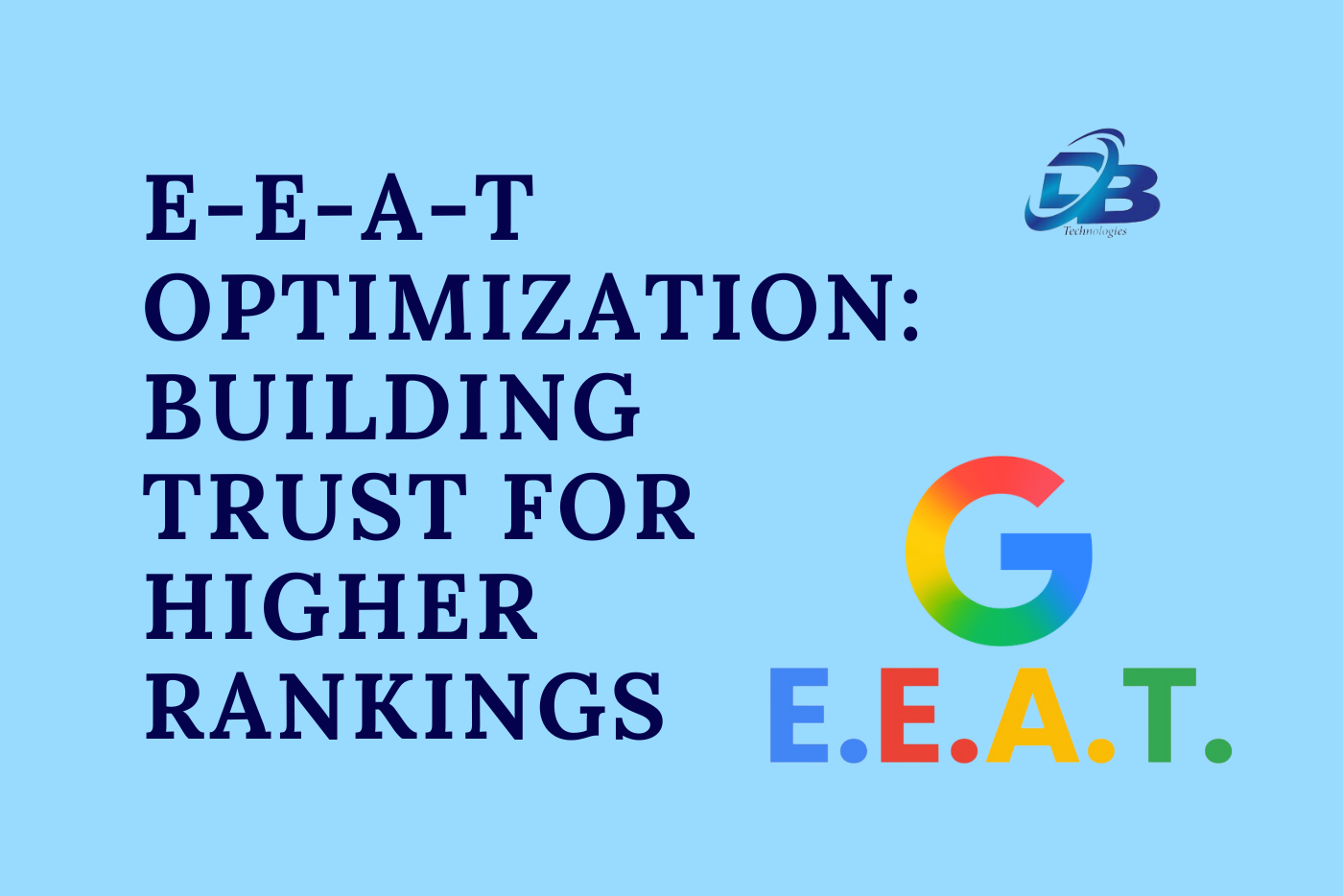
If you have stayed in the SEO field for a long time, you must have witnessed that SEO has undergone a massive transformation. Gone are the days when one could just stuff an article with keywords and one’s site would magically ascend to the top ranking. Today, Google is more like that wise teacher who’s seen every trick in the book, and won’t fall for shortcuts.
Instead, Google wants something bigger, trust. And that’s where E-E-A-T SEO guidelines come in.
E-E-A-T stands for:
1) Experience
2) Expertise
3) Authoritativeness
4) Trustworthiness
Think of it like your online reputation score. You can have the best content in the world, but if people (and Google) don’t trust you, you’re just another voice in the noise.
1. Experience
This is the “have you been there, done that?” factor. Google wants to know you’ve actually experienced what you’re talking about.
For example, if you’re writing about how to train a puppy, have you actually trained one? Have you dealt with the chewed-up slippers and late-night barking? That real-world touch matters.
2. Expertise
Experience shows you’ve been there. Expertise proves you know your stuff. It’s the difference between “I went on a hiking trip” and “I know how to prepare for high-altitude hikes safely.”
Google checks for your background, qualifications, how accurate and well researched your content is.
3. Authoritativeness
This is your reputation in the industry. Are other websites talking about you, linking to your work, or quoting you? Are you seen as a “go-to” source?
You can’t fake this overnight. Authoritativeness grows when:
1) You contribute to well-known sites in your field
2) Influencers or experts share your work
3) People reference you in discussions or articles
4. Trustworthiness
This must not be taken lightly. Consider it as a glue that holds it all together. Trust is all about accuracy, honesty and doing what you have promised to your audience.
Trust comes from:
1) Transparent “About” and “Contact” pages
2) Secure website (HTTPS)
3) Honest product reviews (no “everything is perfect” fluff)
4) Up to date and accurate info
Why E-E-A-T Is the Real SEO Game-Changer
Here’s the truth, keywords can get you found, but E-E-A-T gets you chosen. Think about your own habits, you don’t just click the first link you see. You scan for signs it’s worth your time:
1) Does the author seem credible?
2) Is the information reliable?
3) Does it feel like someone actually knows what they’re talking about?
Google’s job is to give you that “safe to trust” content. So when you optimize for E-E-A-T, you’re not just pleasing algorithms — you’re winning over real people.
The Biggest Misconceptions About E-E-A-T
1) “E-E-A-T is a ranking factor in Google’s algorithm.”
Not exactly. Google doesn’t have an “E-E-A-T score” in its code. But E-E-A-T is part of the Search Quality Rater Guidelines — the manual that real people use to evaluate search results. If your site checks these boxes, your SEO naturally benefits.
2) “It’s just about having a big name.”
Wrong. You don’t need to be a celebrity in your niche to have good E-E-A-T. You can build it through consistency, quality, and transparency.
3) “Once I have E-E-A-T, I’m set forever.”
Nope. Trust is fragile. One bad piece of misleading content can undo months of good work.
Turning E-E-A-T into Action
So, you’ve heard about E-E-A-T and you’re like, “Cool… but where do I even start?”
Good news: you don’t have to flip your whole site upside down. Think of it like stacking bricks, one thing at a time, and soon your site screams trustworthy.
● Start with You About Page
This is where people go to check if you’re real or just another faceless site. Don’t just write fluff. Tell them who you are, why you know your stuff, and what your mission is.
If you run a fitness blog, mention your experience. If you don’t have formal creds, that’s fine, explain your personal journey and how you research things. And yes, add a photo. People trust faces more than logos.
● Add Author Bios
Every post should have a name behind it. Google likes to see who’s talking, and readers do too. A short bio works, maybe link it to a fuller profile if you want.
● Back Up Your Claims
Don’t just say “Studies show…” and leave it hanging. Link to legit sources, medical sites, research papers, big names in your industry. It makes you look serious.
● Keep Things Fresh
Nobody trusts a post last updated in 2018. Every few months, check your best posts and refresh the details. Even just adding “Last updated” looks good.
● Make Your Site Safe & Easy
Trust isn’t only about words. Secure your site (HTTPS), keep it fast, make sure it works on phones, and please… chill with the pop-ups.
● Show Real People Like You
Testimonials, reviews, case studies, these work wonders. Even a short quote from a happy customer beats bragging about yourself
.
● Get Out of Your Bubble
Google loves when others talk about you. Do a guest post, hop on a podcast, or get featured in an article. It all builds authority over time.
Applying E-E-A-T SEO Guidelines for Different Types of Websites
For Bloggers
Share your real stories, your wins, even your failures. Add a proper bio (with a photo, please) and maybe a link to your socials. Oh, and always credit your sources, nobody likes “mystery facts.”
For Online Stores
Show the real deal: clear product details, actual photos (not stock), and easy-to-find return policies. Make checkout feel safe, security badges help. And reviews? Collect them like gold.
For Local Businesses
Put your address, phone, and hours right out there. Show faces, staff photos make you look human, not just a logo. And seriously, Google reviews are your best friend.
Mistakes to Avoid When Implementing E-E-A-T
1) Faking expertise: People can spot it, and Google’s algorithms can too.
2) Neglecting updates : Outdated info screams “don’t trust me.
3) Over optimizing for keywords :Cramming in “E-E-A-T SEO guidelines” 20 times won’t help; it’ll make you look spammy.
Content Is Still King… But Proof Is the Crown
You’ve probably heard the phrase “Content is king.” That’s still true, but in the age of E-E-A-T SEO guidelines, content without proof is like a crown without jewels , it looks incomplete.
Anyone can write an article, but what separates top-ranking sites is evidence of authority woven into the content.
How to Prove Expertise in Your Content
1) Share actual examples — even small wins count.
2) Use data, but explain it like you’d to a friend.
3) Show your process, not just the result.
4) Bring in experts if you’re not one. Quotes and interviews go a long way.
5) Keep your voice real. Use “I” when it makes sense. Admit what you don’t know — and link to someone who does.
Building Authority Outside Your Website
Google doesn’t just care about your own site. It looks at where else you show up. Here’s how to step out:
Guest Post on Big Sites: Pitch helpful content to respected blogs in your niche. The backlink is cool, but being seen next to trusted names? That’s gold.
Speak Up: Webinars, small events, podcasts… they all count. Record it if you can and add it to your site. Shows you’re active, not just hiding online.
Get Media Mentions: A quote in an article or industry news piece can boost your authority big time.
Collaborate: Partner with brands and industry experts. It’s like a win win situation, you borrow their trust, in return they borrow your knowledge.
How Do You Know If E-E-A-T Is Working?
Here’s the thing. Google doesn’t hand out a little “E-E-A-T scorecard.” So yeah, you can’t just check a box and say, “done.” But there are clues that tell you you’re on the right track.
1) Rankings & Traffic
If your page’s start creeping up in search results and you see more clicks coming in, that’s a pretty good sign your trust signals are kicking in.
2) Engagement Stuff
1) Are people actually reading your content? Look at:
2) How long they stay on the page
3) If they bounce right away (that’s bad)
4) Comments, shares, maybe even emails you get about the post
It’s not about collecting a ton of random links. One link from a respected site beats 50 spammy ones.
4) Brand Mentions
Even without a link, if people start talking about you in forums, blogs, or social posts… congrats, your authority is growing.
5) Conversions
At the end of the day, trust should bring more sign-ups, leads, or sales. If those numbers are climbing, something’s working.
Going Beyond the Basics
Okay, so you’ve done the basics, bios, sources, fresh content, HTTPS. Nice work. But if you wanna really look like the go-to expert, you need to step it up. Advanced E-E-A-T is all about adding proof and building that “yep, I trust this site” feeling.
Here’s a few smart moves:
1) Show your creds everywhere, not just About page. Drop them in sidebars, blog intros, even in your free guides. Subtle but powerful.
2) Make a trust page. One spot with your awards, press mentions, collabs, and guest posts. Makes it super easy for people (and Google) to see you’re legit.
3) Add schema (don’t panic). It’s basically code that tells Google who you are. Use plugins like Yoast or Rank Math and you’re good.
4) Fact check your stuff. Even pros mess up. A simple check before publishing adds big trust points.
5) Keep your tone consistent. Whether you’re casual or formal, stick with it everywhere — site, emails, socials.
Common Advanced Mistakes to Avoid
Posting Too Much, Too Fast
Some think posting daily makes them look like an expert. Truth? If you rush and skip depth, it backfires.
Bad Design Choices
Old school layouts, blurry pics, random fonts… all scream “outdated.” People notice.
Clickbait Claims
Titles like “I made $100k in a month” (with zero proof) kill trust fast. Be bold, but show receipts.
Too Much Self-Promo
If every post shouts “buy my stuff,” readers leave. Mix in tips, stories, and real value.
Future-Proofing Your E-E-A-T
Google’s algorithms will keep evolving, but trust as a ranking signal is here to stay.
Here’s how to make sure your credibility survives future updates:
1) Keep Learning –Stuff changes quick. Stay updated or you’ll sound stale.
2) Build Real Connections – Genuine relationships get you natural mentions and links.
3) Track Your Wins – Save certs, reviews, updates… they’ll help when Google shifts gears.
4) Go Evergreen – Don’t just chase trends. Solid, timeless content pays off for years.
Why E-E-A-T Is Bigger Than Just Rankings
It’s not just about making Google happy. When people trust you, they come back, share your stuff, and even stick up for you. If search engines vanished tomorrow, your reputation would still keep you in the game.
1) Experience makes content feel real.
2) Expertise makes it solid.
3) Authority earns respect.
4) Trust builds loyalty.
Finally, you don’t need a huge budget or fancy title. Start with what you know, share real stories, and be open. Do it consistently and you’ll build a name both Google and people love.












